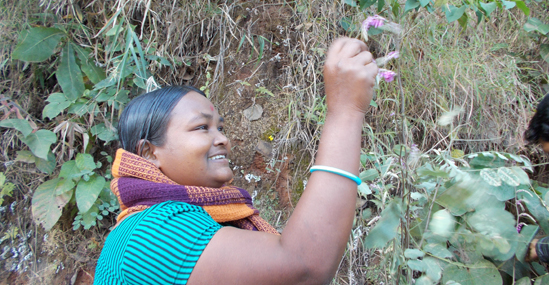

AK Pankaj
akpankaj@gmail.com
In the history of Indian democracy, this happened 62 years ago. The day was May 20, 1959, when all eyes were fixed on the Supreme Court. Because on that day, the verdict of V. V. Giri Vs Dippala Suri Dora case was about to come. At that time V. V. Giri was a very strong leader of the Congress, who had held important political positions since British times. He was the Indian Ambassador to Sri Lanka from 1947 to 1951, and from 1952 to 57 he was the Union Labor Minister in the country’s first Nehru cabinet. He was the governor of Uttar Pradesh, the most influential state in India’s politics, on the day the Supreme Court was going to decide on his petition. Whereas, the person against whom the case was filed was a common Adivasi from Sariki village in Srikakulam taluka of Andhra Pradesh. Obviously, the case was not a trivial one, and it pertained to a politician who was reputed to be a Congress messiah who fought for the Laborers.
Before knowing what the Supreme Court said in its judgment, it is important to have a look at V. V. Giri vs Dippala Suri Dora case. After all, then Mr. Giri was the governor of Uttar Pradesh and had been the ambassador and the central labor minister, on what issue did he have a fight with a common Adivasi?
The story went that to the 1957 general election, V. V. Giri had lost the Parvathipuram Lok Sabha seat from that modest Adivasi. Whereas, before the election, Mr. Giri, was the Central Labor Minister in the Nehru government. He could not digest that defeat. Because, on the one hand, the margin of defeat was very small. Only 565 votes. The second was that a Brahmin leader like him, who was born to rule, was defeated by a savage, uncivilized, foolish Adivasi.
The 1957 election was the second general election of independent India. Which took place between February 25 and March 19. The Parvathipuram Lok Sabha seat of Andhra Pradesh was a double-member constituency. In this, one seat was reserved for the general category, and the other for ST. From where Veteran leader VV Giri was Congress candidate for General category and B Satyanarayan Dora for ST category. Dippala Suri Dora and V Krishnamurthy Naidu stood from the Socialist Party. After the counting of votes on 19 March 1957, B Satyanarayan Dora under the ST category and Dippala Suri Dora under the General category were declared victorious. V. V. Giri was defeated, which was a huge blow to his reputation.
To overcome this shock, he immediately, i.e. on 16 April 1957, filed an election petition (Election Petition No. 83/1957). In which it was said that Dippala Suri Dora had filed nomination as ST candidate, so his victory from the general seat should be considered void. The second allegation was that at the time of the election, he had become a Hindu religious Kshatriya, so his nomination as an ST was wrong.
Well, it was a judicial process which had to go on for a long time. And what will be the verdict in the end, it was also in the dark. Then the Congress made him the Governor of Uttar Pradesh on 10 June 1957, two months after the petition was filed, to get him out of shock. Still, the urge to lose to an Adivasi continued to sting in his heart.
The Election Tribunal accepted the allegations leveled by V. V. Giri on Dippala Suri Dora in the petition. Then the winner Adivasi Mr. Dora went to the High Court against the decision of the Tribunal. The Andhra Pradesh High Court, overturning the Tribunal’s decision, upheld the election of Dora (Special Appeal No. 4 of 1957/13 March 1958). After this V. V. Giri reached the Supreme Court regarding the matter.
Mr. Giri, who was the governor at that time, and the future President of the country, had thought how an Adivasi would reach the Supreme Court. And even if he reaches, they will defeat it there by their upper-class caste status, and political influence. But, where was the Adivasi Dippala Dora going to give up? He too stood firm in the Supreme Court.
Then the hearing went on. It went great. And, finally, on 20 May 1959, the Supreme Court delivered its historic verdict. The five-judge bench said that Adivasis and Dalits can contest elections from the general category in addition to the reserved seats. As far as Dippala Suri Dora being a Hindu Kshatriya is concerned, it is not factual. He is Adivasi, and are legally elected people representatives from the general seat of Parvathipuram.
Please Share and Support



